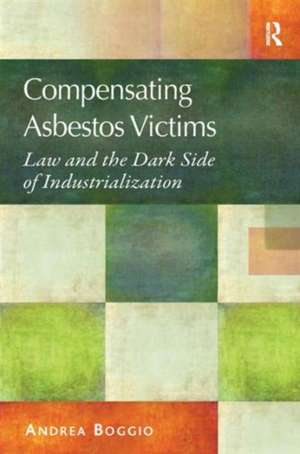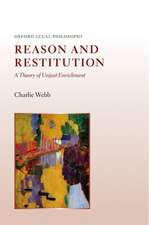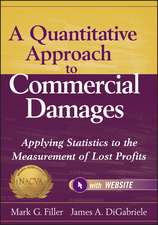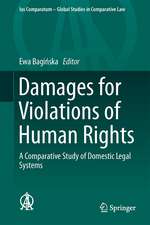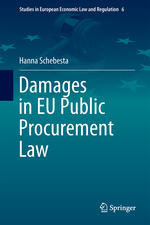Compensating Asbestos Victims: Law and the Dark Side of Industrialization
Autor Andrea Boggioen Limba Engleză Hardback – 10 oct 2013
| Toate formatele și edițiile | Preț | Express |
|---|---|---|
| Paperback (1) | 388.52 lei 6-8 săpt. | |
| Taylor & Francis – 30 iun 2020 | 388.52 lei 6-8 săpt. | |
| Hardback (1) | 1059.93 lei 6-8 săpt. | |
| Taylor & Francis – 10 oct 2013 | 1059.93 lei 6-8 săpt. |
Preț: 1059.93 lei
Preț vechi: 1292.60 lei
-18% Nou
Puncte Express: 1590
Preț estimativ în valută:
202.84€ • 220.26$ • 170.39£
202.84€ • 220.26$ • 170.39£
Carte tipărită la comandă
Livrare economică 23 aprilie-07 mai
Preluare comenzi: 021 569.72.76
Specificații
ISBN-13: 9781409419075
ISBN-10: 140941907X
Pagini: 302
Dimensiuni: 156 x 234 x 18 mm
Greutate: 0.6 kg
Ediția:New.
Editura: Taylor & Francis
Colecția Routledge
Locul publicării:Oxford, United Kingdom
ISBN-10: 140941907X
Pagini: 302
Dimensiuni: 156 x 234 x 18 mm
Greutate: 0.6 kg
Ediția:New.
Editura: Taylor & Francis
Colecția Routledge
Locul publicării:Oxford, United Kingdom
Cuprins
Compensating Asbestos Victims
Notă biografică
Andrea Boggio is Associate Professor of Legal Studies at Bryant University, Rhode Island, USA. His research focuses on the legal and ethical issues connected to and health, science, and technology and on the relationship between law, capitalism, and the welfare state. His research interests are in the areas of: Legal Philosophy and Reasoning; Legal Ethics; Science, Law, and Human Values; and Social Science and Legal Decision Making. He has published widely on these and related areas. He earned a doctoral degree from Stanford University and completed his post-doc training at the University of Geneva. He taught at the Centre for Professional Ethics at Keele University in England.
Recenzii
'This impressive study shows the devastating effects of asbestos exposure refracted through the lenses of four quite different legal cultures. Andrea Boggio has much to tell us about the capacity and the limits of law in response to human suffering and corporate power.' David Engel, SUNY Buffalo Law School, USA 'Compensating Asbestos Victims offers an in-depth description of how four countries and three international corporations have responded to the epidemic of asbestos-related diseases ... It is richly detailed and nuanced ... Given its comparative, multi-dimensional and multi-disciplinary focus, the book should be read by a broad audience, including public policy scholars interested in the asbestos crisis, comparative legal scholars interested in different national legal and regulatory styles, welfare state scholars interested in how existing policies shape the framing of new claims, and anyone interested in meaningfully integrating law, courts and legal practices into the study of politics and policy-making processes.' Jeb Barnes, University of Southern California, USA
Descriere
This book traces the emergence and transformations of asbestos compensation to explore the wider issue of to what extent legal systems have converged in the era of globalization. With material gathered from fifty interviews and from primary and secondary sources, the book advances our understanding of how law operates within cultural norms, routines and institutional relations of capitalist societies. The author also reflects more widely on law as a cultural phenomenon, national styles of legal culture and the convergence and divergence of legal cultures, and law as a form of institutionalized power.
